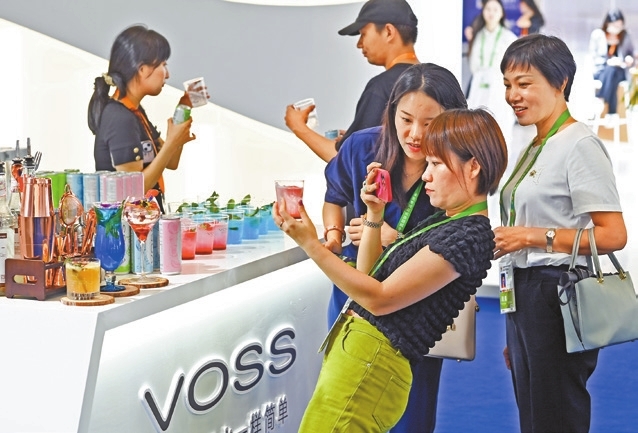
SHANGHAI recently introduced China’s first grading system that evaluates the nutritional value of beverages, as part of efforts to guide residents toward more informed and healthier drink choices. The Nutri-Grade system, guided by the Shanghai Center for Disease Control and Prevention, rates beverages from A to D based on their content of four key nutrients — added sugar, saturated fat, trans fat and non-sugar sweeteners. Beverages receiving a lower grade contain higher amounts of sugar, saturated fat and other unhealthy additives. The overall grade is determined by whichever of the four nutrient classes receives the lowest score. For example, a drink with an A grade for trans fats but a C grade for added sugar would receive an overall C rating. While plain unsweetened teas often qualify for the top grade, drinks with artificial sweeteners cannot achieve an A rating. Trials also show that factors like container size and amount of added ice can have an impact on a beverage’s final score. The need for such a system is clear. According to the Shanghai CDC, 67% of adults and 90% of primary and secondary school students in the city regularly consume sugar-sweetened beverages. Gao Boyan, a food science researcher at Shanghai Jiaotong University, said the grading criteria were likely selected based on China’s dietary guidelines for preventing obesity, as added sugars and fats are the main contributing factors. Zang Jiajie, head of Shanghai CDC’s nutrition department, said the ratings aimed to “raise public awareness of what constitutes a balanced diet.” Major milk tea brands like Chagee and Naixue have already incorporated the Nutri-Grade system on their menus. Customers can easily see the drink’s nutritional grade by clicking on the details in the corner of the image. The Shanghai CDC previously analyzed 122 milk tea products from 13 brands. It found that under the new system, over 93% of those claiming “no added sugar” could receive a B grade or better, while nearly half of those claiming “30% sugar” would score a C or better due to sugar content alone. While only four beverage makers have adopted the labels so far, others are taking action. Local tea milk brand Auntie Jenny recently reformulated one of its products, reducing sugar by 31.5% ahead of the grading requirements. Zang said that after the initial pilot brands, more companies including Starbucks are in discussions to adopt the labeling system. Shanghai also plans to explore the display of beverages grouped by Nutri-Grade rating in community canteens and chain stores to guide healthy consumption habits. Health experts view the straightforward Nutri-Grade system as an important step toward empowering Shanghai residents to make smarter beverage choices and addressing the over consumption of unhealthy sugary drinks. The Nutri-Grade system’s selection of key nutrients to evaluate is very important from a nutritional standpoint, especially regarding added sugars. Notably, it excludes naturally occurring lactose from dairy products while flagging saturated and trans fats — all meaningful factors, according to Gu Zhongyi, a nutritionist at the Beijing Dietetic Association. “Overall, I support Shanghai taking this pilot initiative,” he said. (China Daily) | 
